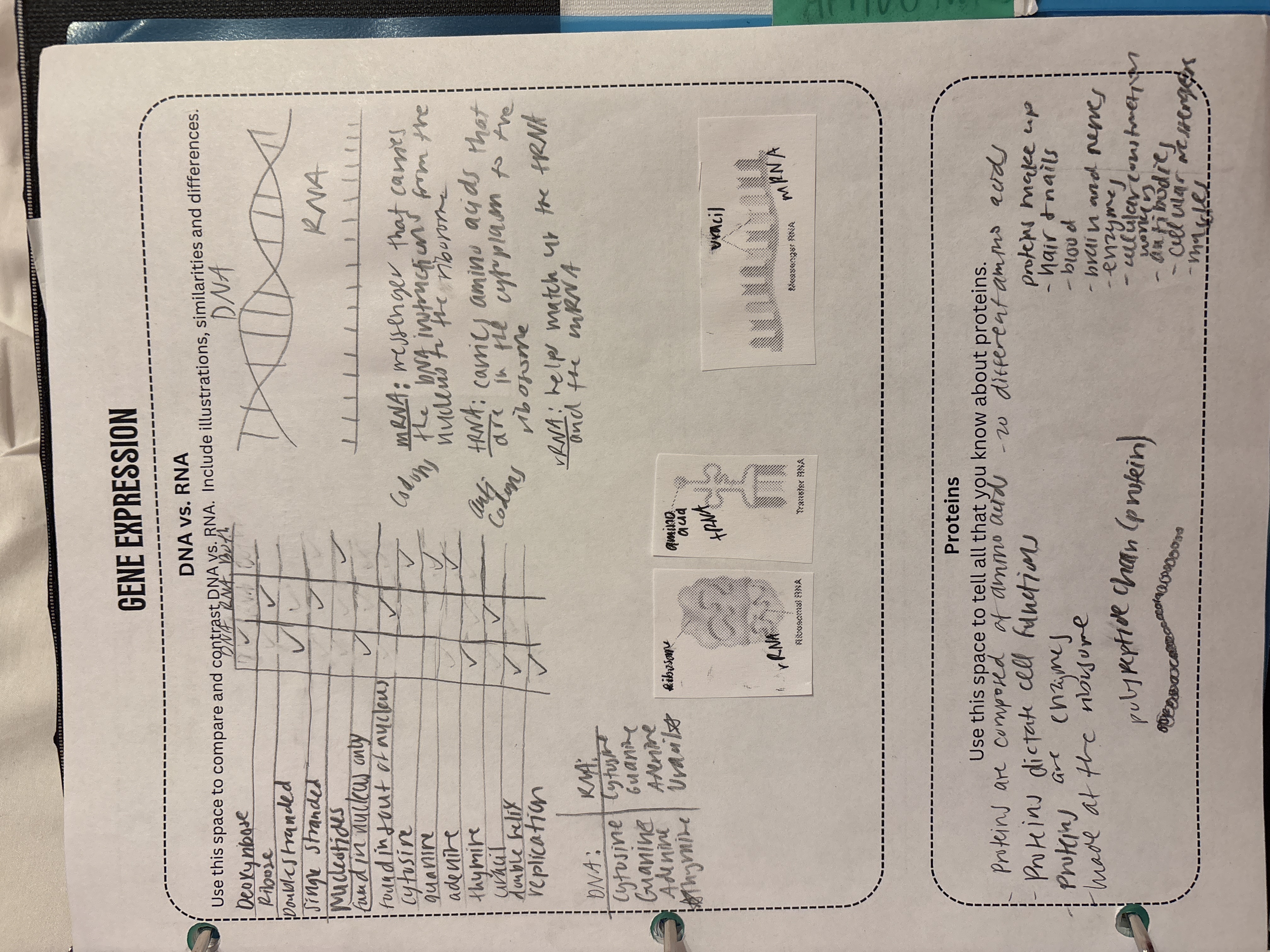Use this space to compare and contrast DNA vs. RNA. Include illustrations, similarities and differences.

Understand the Problem
The question is asking to compare and contrast DNA and RNA, detailing their similarities and differences. This involves identifying key characteristics such as structure, function, and components of both molecules.
Answer
DNA is double-stranded with deoxyribose and uses thymine; RNA is single-stranded with ribose and uses uracil.
The worksheet compares DNA and RNA based on structure, function, and nucleotide composition. DNA is double-stranded, contains deoxyribose, and uses thymine. RNA is single-stranded, contains ribose, and uses uracil. Both are made of nucleotides and play roles in genetic information processing.
Answer for screen readers
The worksheet compares DNA and RNA based on structure, function, and nucleotide composition. DNA is double-stranded, contains deoxyribose, and uses thymine. RNA is single-stranded, contains ribose, and uses uracil. Both are made of nucleotides and play roles in genetic information processing.
More Information
DNA's stability allows it to store genetic information long-term, while RNA's shorter life is ideal for transient messages during protein synthesis.
Tips
Common mistakes include confusing sugar types (deoxyribose vs. ribose) and nucleotide bases (thymine vs. uracil).
Sources
- DNA vs. RNA – 5 Key Differences and Comparison - technologynetworks.com
- The Differences Between DNA and RNA - ThoughtCo - thoughtco.com
AI-generated content may contain errors. Please verify critical information